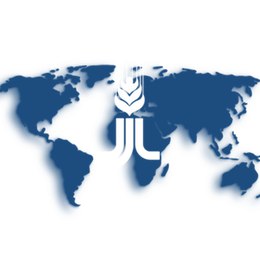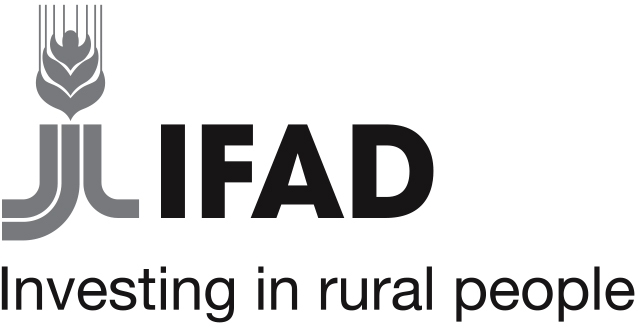Mobilizing public-private partnerships in support of women-led small business development
"Only a year back, we all were women thoroughly dependent on our husbands and brothers, because we did not have any skills or job to support our families financially... I am grateful to God and my husband for being a member of this group. Every day I wake up with enthusiasm knowing that I will go to meet other women and spin. I enjoy it a lot. And the most important thing is that I earn money. I make AFN 1,500 per month. With this money, I am able to pay the electricity bills, stationary and uniforms for my children to go to school."
BACKGROUND
In Afghanistan, Kyrgyzstan and Tajikistan, business development is based on informal connections, which discourages poor people – especially women – from starting businesses. This project established sustainable women-led businesses by supporting fibre processing and creating links with international buyers.
WHAT’S INVOLVED
Women’s empowerment
By providing opportunities to increase incomes through activities known as women’s work, the project challenged gender inequalities and raised women’s incomes
Public-private partnerships
Linking smallholder fibre processors with international buyers has opened new markets and business opportunities for rural women.
EXPLORE THIS SOLUTION
This project can offer
- experience establishing public-private partnerships between smallholder fibre processors and international institutions; and
- insight into overcoming restrictive gender roles and creating an enabling business environment.

Countries involved
Tajikistan, Kyrgyzstan, Afghanistan
Project partners
IFAD, Mountain Societies Development Support Programme (MSDSP), Aga Khan Foundation (AKF)
Project dates
2013- 2017
Share this solution
Bookmark this solution
BookmarkShow Full Solution
Summary
Despite having the necessary skills in agricultural processing, rural women in Afghanistan, Kyrgyzstan and Tajikistan face multiple constraints in developing new businesses. Business development in these countries is based on informal connections, which discourages poor people – especially women – from starting businesses. This project set out to establish 30 sustainable women-led businesses to generate incomes for about 500 rural households by supporting fibre processing and creating links with international buyers.
Challenge/Problem
Women in Tajikistan, Kyrgyzstan and Afghanistan play key roles in agricultural processing, but they are constrained in converting their skills into income-generating businesses. First, traditional gender roles confine women to their homes – women are discouraged from borrowing money, travelling to markets without male relatives, freely communicating with strangers and learning to use computers. Gender inequality not only jeopardizes women’s capacity to earn incomes and develop businesses, but it also leaves untapped business opportunities in processing agricultural products such as fibres. The skills necessary for small-scale agricultural processing, like spinning and knitting, are often considered women’s work – and thus unsuitable for men.
Furthermore, the business environments in Tajikistan, Kyrgyzstan and Afghanistan are based on informal ties and networks of well-connected individuals, as opposed to contracts and rule of law. Such an environment is skewed against poor people, especially women, who tend to have fewer important connections. Additionally, a lack of access to credit and a general isolation from markets have worsened the chances of rural women succeeding in small business.
Solution
Launched in March 2013, the Mobilizing Public Private Partnerships in Support of Women-led Small Business Development project aimed to set up sustainable, export-oriented small businesses for producing and processing cashmere, mohair and wool in order to increase women's earnings, household incomes and food security. The project targeted three main groups:
- poor rural women in Northern and Eastern Tajikistan and Naryn region of Kyrgyzstan who processed local fibres into yarn and products for sale
- women in adjacent villages and regions, including the Badakhshan province of Afghanistan, who did not have experience in processing fibre for export but produced cashmere-type goats and had the potential to learn fibre processing and export fibre products
- cashgora (a crossbred goat), cashmere and Angora goat producers who received support in fibre production, harvesting and sold fibre to the processing groups
Implemented by multiple partners in Tajikistan, Kyrgyzstan and Afghanistan, the project assisted women’s groups with business planning and access to credit by working with local business organisations and establishing revolving funds. The project also provided institutional support for the targeted groups' operations through business registration and businesses charter establishment. Regarding knowledge dissemination, IFAD and other collaborating organisations not only trained women in new processing technologies and business management, but also trained fibre producers in sustainable production of quality mohair and cashmere at pilot sites. Moreover, the linkages between markets and suppliers of raw fibre have been deepened by the project. The most successful businesses were used as models to develop similar businesses at other sites, including in Afghanistan and in other IFAD funded projects.
Results
Afghanistan
- Two spinning groups comprising 20 spinners were established. The yarn spun from Afghan cashmere sells well on the US market.
- The Afghan spinners earned approximately US$100 from part-time spinning and are in charge of their business. Over 130 kg of cashmere yarn was produced for domestic and international markets, earning the groups nearly US$8,000 in profits.
Kyrgyzstan
- Nearly 100 beneficiaries have developed skills in handicraft production and marketing. Women were provided with training, equipment and tools needed to improve the quality and quantity of their output.
- Entrepreneurs each earned about US$1,230 through a sales point established at a major hotel. This represents a significant contribution to their household incomes, which average US$1,400 annually).
- A registered association, Aidemi, was established to provide further training, counselling, coaching and other services.
Tajikistan
- Seven women-led businesses were established and registered to process fibre into export-grade yarn. They are also linked to fibre suppliers, a dehairing facility in Afghanistan and yarn buyers in the US.
- The value chain benefits approximately 80 Tajik spinners and 250 cashgora goat producers, generating about US$68,000 in earnings each year.
Lessons Learned/Potential for replication
- The collaboration between Afghan and Tajik women proved to be effective, and connections to the international market opened up new opportunities to do business in cross-border districts of Afghanistan.
- More work is needed to strengthen access to formal credit and loans. Existing microfinance institutions offer products at interest rates of 20-30 per cent, too high for women engaged in small-scale handicraft production.
- Of the sampled enterprise group members, 78 per cent indicated that increases to their household income had enabled them to provide more nutritious meals for their families.
- Identifying and supporting strong women leaders is key to overcoming challenges facing women-led businesses, but it is difficult to find women who are able to play these roles. The leadership require long-term, individual expert support and practical experiences.
- The value chain needs to be market-driven and should focus on establishing close linkages between producers and buyers to guarantee sustainability.
Next Steps
A dehairing facility will be built in Tajikistan to scale up fibre harvesting and processing. About 4,000 rural households are expected to gain US$120,000 from selling sheared cashgora, cashmere or yak fibre to the facility. Continued monitoring will be necessary to ensure that production volume and quality standards are maintained.
In Kyrgyzstan, a market-informed case for such programmes should be presented to the government. Continued capacity-building efforts are also needed to strengthen the Aidemi Association, which should be part of a handicraft-development strategy that incorporates a range of issues, such as access to finance, markets and an enabling environment.
Solution Video
Solution Document Downloads
Last update: 23/01/2019


